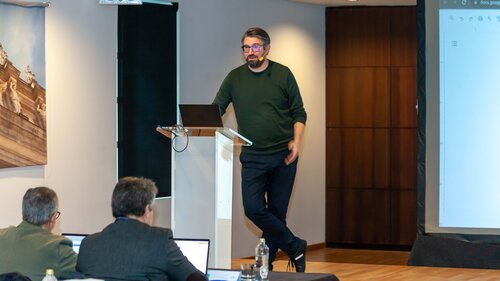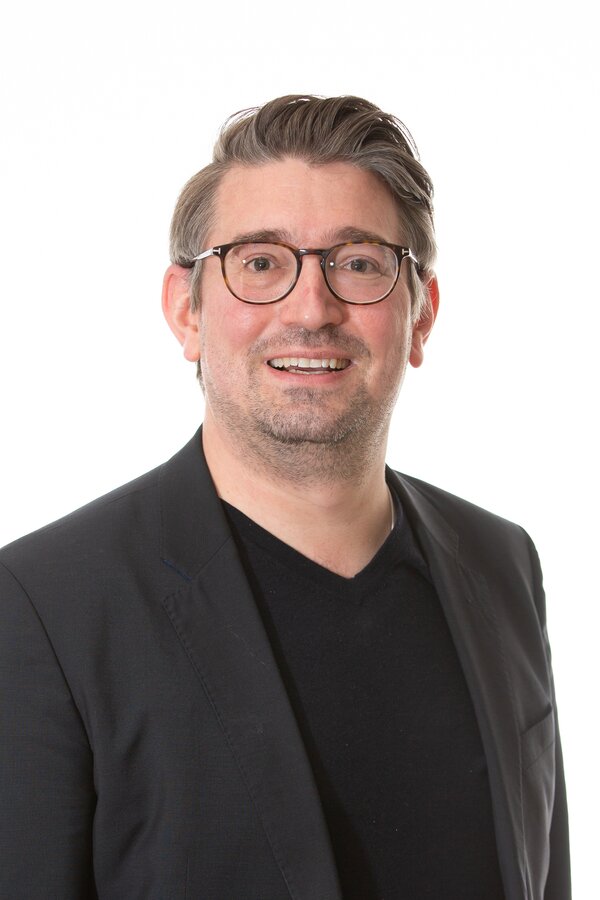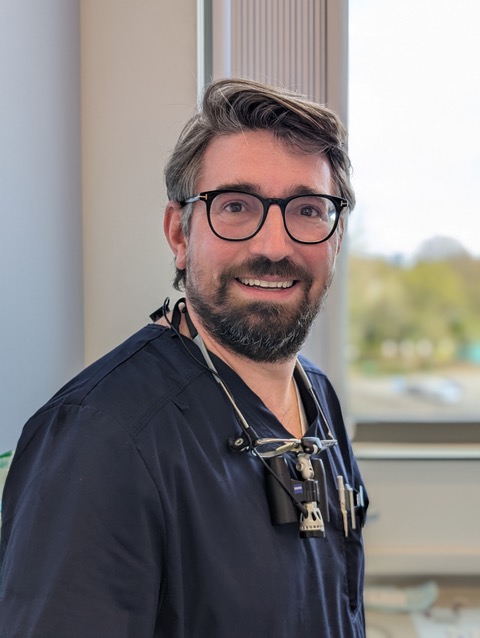![]()
23 April 2024
Focus on the future: incoming president Moritz Kebschull shares his vision
Categories:Communication, Institutional

Professor Moritz Kebschull (University of Birmingham) incoming president of the European Federation of Periodontology shares his motivation, vision and insights into the transformation he would like for the federation.
What motivated you to take on the role of president?
My years on the board of the German and British member societies allowed me to witness first-hand how successfully the federation leverages its international perspective and network in periodontology. Having contributed to the EFP Workshop Committee’s development of the clinical practice guidelines I saw the tremendous potential these developments could have for the future of perio.
Therefore, I was thrilled to be nominated for this important post by the German society, and I have presented a programme for global impact. This is important. Becoming EFP president is a highly competitive process, and I am immensely grateful to the national societies who supported me. This is an opportunity to help the EFP evolve even further!
What is your vision for the federation during your term as EFP president?
In a word - impact. I aim to transition the EFP from a European entity to a globally impactful organisation that benefits all stakeholders in perio: societies, our members in the healthcare professions, local systems and our patients.
Are there specific areas or issues you plan to prioritise?
Deliver impact for the EFP, our members and our patients in terms of:
- Global influence through updated clinical practice guidelines and classifications, and more collaborations such as the Economist white papers- where the EFP is leading.
- Expanding periodontal education, strengthening undergraduate and specialist postgraduate education following the appropriate guidance, and steering the novel addition of the "third pillar", as defined by the upcoming consensus paper from last year's workshop.
- Strengthening periodontal research (and researchers!) in Europe and beyond through fostering scientific collaboration and exchange. I envision programmes like the "EFP Fellows" to turbocharge the careers of young and dedicated researchers by placing them in world-leading environments.

What do you see as the biggest challenges facing the federation right now?
The EFP has been growing strongly over the last few years, morphing from a European federation of learned societies into a global player with a world-wide audience. The transition to a global presence requires a strategic overhaul to professionalise internal and external processes.
This strategic update will take place in September 2024, with a presentation of the results at the EFP General Assembly in Birmingham in March 2025.
How do you plan to build upon the work of the outgoing president, Professor Darko Bozić?
Prof Darko Bozic has done a brilliant job starting to update the internal processes in preparation for a global EFP. I have always enjoyed working with the open and outspoken Darko tremendously and will continue to lean on him for the strategy review and the way our federation works.
Are there any significant changes or new directions you intend to introduce?
The shift from a European to a global perspective will bring gradual administrative changes. These include enhancing governance and structures to maintain our influence effectively. For the EFP to become a fully global organisation, whilst maintaining its European heart and core values, we need to work on strategic partnerships and collaborations.
How do you plan to engage the federation’s members and encourage active participation?
Our members are key for the EFP and I understand how important it is to take their views into account, especially when the federation is growing so fast and changing in terms of its mission. This is why we use general assemblies more as strategic workshops now, to better incorporate member insights. This ensures our member’s voices are heard and integrated to help us guide the EFP.
What steps will you take to ensure inclusivity and diversity within the federation?
Our processes are evolving, professionalising, and there is a big emphasis on broadening the access to committee positions and participation, especially including young professionals. This will enrich our federation’s diversity and operational effectiveness.

What are your long-term goals for the federation, and how do you plan to achieve them?
I would like to see the EFP, whilst maintaining its European heart and core values, grow further towards a fully global organisation with global impact. I believe that only by doing so, we can fully leverage the clinical and scientific resources of the federation and its members in a most efficient way and improve the understanding, prevention and treatment of periodontal diseases world-wide.
How will you measure the success of these initiatives?
We are now pretty good in capturing the reach of our initiatives, both on a scientific level - think of the work of the last European workshop that demonstrated how prevalent the classification and the guidelines are now in clinical training and in the scientific literature, and on an economic level. We can measure and capture better and better, how much money and resources are used in typically national systems for the prevention and treatment of periodontal diseases - and we showed with the Economist team how much further scope there is for saving money by proper targeted prevention - a message that global decision makers clearly understood.
How important are collaborations and partnerships for the federation under your leadership?
As a growing European organisation with a global reach, it is our privilege to work with both scientific peer organisations and with the very best industry. For these collaborations, I am a firm believer in the principle of a “win-win”, i.e., both partners should be able to gain from the relationship in a transparent, open and fair manner. This explicitly includes that the EFP is a federation of national societies that should not engage in activities actively competing with its own members.
What are you most looking forward to in the coming year?
I am looking forward to seeing our strategic plans materialise into impactful programmes that are interdependent and aligned. I believe that they will work beautifully with the soon-to-be-finalised mission and vision of the new global EFP.
I also look forward to collaborating with our member societies, partners, EFP staff and committees. Everyone’s involvement is essential to drive the EFP forward!




